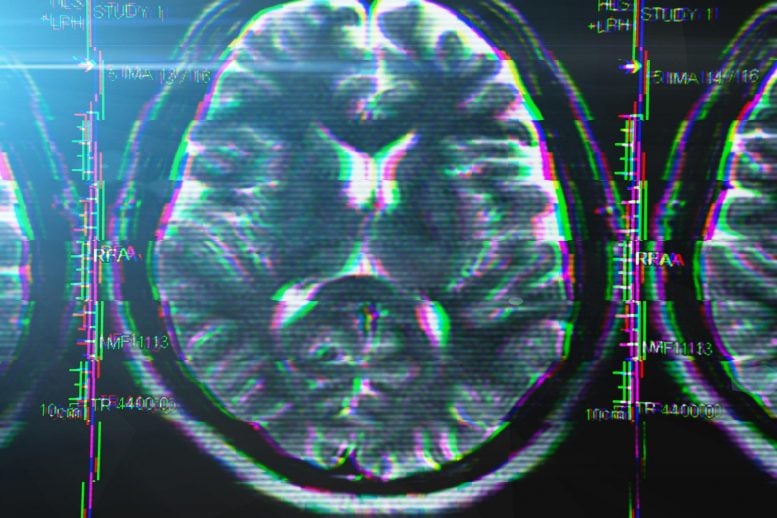
Most of what we know about how COVID can affect the brain has come from studies of severe infection. In people with severe COVID, inflammatory cells from outside the brain can enter brain tissue and spread inflammation. There may be changes to blood vessels. Brain cells can even have changes similar to those seen in people with Alzheimer’s disease.
For the first time, a new study has investigated the effects of mild COVID (that is, infection that doesn’t lead to a hospital admission) on the brain. The findings may further explain some of the brain changes contributing to long COVID.
Brain scans and tests show changes
Many people who have had COVID report feelings of “brain fog”, fatigue and problems with concentration and memory long after their initial symptoms resolve. These problems, collectively referred to as “long COVID”, may last for months even after mild infection.
Long COVID is very common, and may affect more than half of the people who catch COVID, even if they have a mild case.
Scientists collected data as part of the massive UK Biobank database. They looked at brain magnetic resonance imaging (MRI) scans and tests of brain function in 785 volunteers who were assessed before the pandemic. They then compared this to the same data collected three years later, when about half of those participants had mild COVID infection, and the other half had not caught COVID. This allowed the scientists to determine the specific effects of mild COVID infection on brain structure and function.
The group who had mild COVID an average of five months beforehand had thinning of brain tissue in several brain regions, ranging from 0.2% to around 2% compared to their pre-COVID scan. This is equivalent to between one and six years of normal brain aging. Affected brain regions included the parahippocampal gyrus (an area related to memory) and the orbitofrontal cortex, which is located at the front of the brain and is important for smell and taste.
The post-COVID group also showed a reduction in overall brain size between their MRI scans that wasn’t seen in the non-COVID group, and had altered connections between different brain regions in the olfactory cortex, an area related to smell.
They performed worse in a test for attention and mental flexibility, a finding that was associated with volume reductions within a part of the cerebellum related to smell and social relationships.

Further research is needed to see if COVID affects the brains of younger people in the same way.
Comparing to other illnesses
To show these changes were specific to COVID and not just related to having a respiratory illness, the scientists also looked at a group of people who had pneumonia. They did not see the same changes, confirming they are related to COVID.
Decreases in brain volume are common to many brain diseases and disorders associated with degeneration, and have been found in people with mild cognitive impairment, Alzheimer’s disease, depression, and traumatic brain injury, among others.
Problems with memory and attention are also frequent for people with these diseases and disorders, indicating mild COVID infection may accelerate brain degeneration. These changes could explain the reported symptoms of long COVID, such as brain fog.
The study did not look at the mechanisms of mild COVID in the brain. However, the authors suggest this could be due to inflammation, degeneration which spreads through the brain pathways associated with smell, or sensory deprivation due to loss of smell.
The same for everyone?
So does this study prove all people who have had mild COVID infections will have these same brain changes and long-term brain degeneration? Not necessarily.
There are several important things we still do not know. This includes whether these brain changes will get worse over time, or whether they will go back to normal or previous levels of function. More research over a long time would help us understand the trajectory of brain changes.
This study also only included people aged 51–81, so we do not know whether these findings are relevant for younger people or children.
The brain changes found in this study were more pronounced in the older participants, so it could be that older people are more susceptible. Another study is needed to determine whether the same brain alterations would occur in younger people, or whether these findings are common only to older people.
There were some differences between the groups before COVID, with smaller volumes of areas deep within the brain. However, these were in different brain areas to those affected after COVID.
The scientists also found slightly reduced scores for brain functions of thinking and remembering in the group that went on to have COVID. This study did not specifically exclude people with degenerative brain conditions such as Alzheimer’s or Parkinson’s diseases, but the scientists do not think these would explain the changes they found.
The teenage years are an important period for brain development. So what happens to the brain if milestone events are cancelled?
How can we help students positively refrain their COVID experiences? @Griffith_Uni @WellingtonUni https://t.co/530QPT4pfF
— The Conversation (@ConversationEDU) February 18, 2021
Effects of different variants and vaccination unknown
Because of the nature of the study, information about the strain of COVID people were infected with was not available. So we can’t assume the findings would be the same for people with the now more prevalent Omicron strain.
We also can’t determine the effect vaccination may have in lessening brain changes. Given the timing of the study, it is likely most of the people in the post-COVID group were infected in 2020, so may not have been vaccinated.
This study provides the first important information about brain changes in people with mild COVID infection. Until we have all the information, we should be alert but not alarmed at emerging findings.
Written by Sarah Hellewell, Research Fellow, Faculty of Health Sciences, Curtin University, and The Perron Institute for Neurological and Translational Science, Curtin University.
This article was first published in The Conversation.![]()

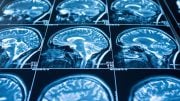
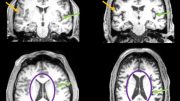



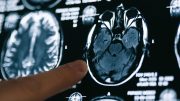
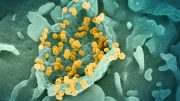

Shrinkage definitely affects my performance.
So they don’t know if this was from Covid or the vaccine or people that had Covid and then were vaccinated…
Do they pay you anti-vaxxers to leave these stupid comments all over the internet? Just stop.
Just make “Facts” up to suit your cause.
Hey L, Valid questions should be answered. The scientific process would required a study on each group and results published. This answer could be proven and replicated, at that point any person would be able to decide if they trust the gene therapy. The cancel culture (just stop) will not ever convince anyone by just saying something is true. Proof is what is needed and detailed study information widely available for experts to review. Published results in a respected medical journal will go a long ways to acceptance by the population.
Folks, read the disclaimer discussing the limitations of the study. It is not at all misleading and basically admits that vaccinated and non-vaccinated patients with COVID would have to be studied to give a fuller picture:
“We also can’t determine the effect vaccination may have in lessening brain changes. Given the timing of the study, it is likely most of the people in the post-COVID group were infected in 2020, so may not have been vaccinated.”
What needs to be investigated is whether COVID after a vaccine is less damaging than COVID with no vaccine. Odds are that this is the case, but we don’t have a study yet.
What worries me is that anti-vaxxers are generally not Einsteins and this would lower their ability to reason even more. Most of these folks that I’ve talked with have zero knowledge of biology or of any other science and rely on their friends’ advice as well as conspiracy theories on the internet. None have relied upon their physician’s advice. When I suggest that they go to their doctor, I get a blank look, so I drop the subject.
Art, and what do you rely on. Fear for your own life? Current administration? Top scientists who time and time again get debunked and proven wrong over time?
Genuine question, why are you here? What are you doing on a website that covers scientific research? Don’t you have Russia to defend somewhere?
So, basically, the dumbsh!ts that ignored mask rules, refused vaccines, and generally failed to take this seriously from the beginning are going to be even dumber, as a population, than before. And, worse, by spreading the disease and prolonging the pandemic, they are bringing the whole world along with them.
All to glorify a skeezy slumlord Russian agent being run by the kremlin for the last 30 years.
Sure, more study is needed, but just so we are all clear, this is exactly in line with dozens of other completed, peer-reviewed, published studies that have shown that vaccines, mask-wearing, and social distancing reduce transmission, reduce severity, improve the chance of avoiding infection entirely, and reduce long-term effects. More study is ALWAYS needed. We can always improve our confidence intervals and p-values with more data. That does not mean we should ignore the evidence presented by the studies that have been completed so far.
This is all just a symptom of the greater problem we have, which is that right-wingers have a reduced cognitive capacity for comprehending and acting on conflicting information, and when confronted with complexity, are more likely to resort to emotionality rather than doubling down on rational examination of reality. This tendency has been exacerbated in the USA by the embrace of emotional discourse on the part of the GOP, and their 40-year assault on the public education system.
They have coupled this attack on the intellectual capacity of our people with an unveiled appeal to white supremacy/nationalism and overt racism that has normalized such behavior – leading to the rise of people like Trump, Meadows, the Proud Boys, etc.
So now you (Aaron) found a new scapegoat in Russians for American economy failures. When will you stop blaming other for your own idiocy?